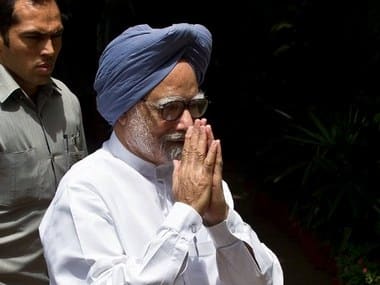The lure of 8 million votes has rendered the allegedly reformist duo of Prime Minister Manmohan Singh and Finance Minister P Chidambaram weak in the knees. There is no good reason at all for the UPA to announce the formation of the 7th Pay Commission – which will recommend substantial pay hikes for Central Government employees – now.
It hasn’t been the customary ten years since the last one was constituted in 2006, also by Singh and Chidambaram.
Central Government employees and pensioners (8 million of them) are among the privileged minority of Indians whose wages are in any case index-linked to inflation and rise by a quantum of the Government’s mismanagement of inflation. Also, the Government’s fiscal health is the worst it has been in twenty years. The private sector gives no hikes when it makes no profits. There could not be a more inappropriate time to signal a serious increase in the Government’s wasteful consumption expenditure, even as productive investment expenditure is cut to meet fiscal deficit targets.
[caption id=“attachment_1132843” align=“alignright” width=“380”]  The lure of 8 million votes has rendered the allegedly reformist Prime Minister Manmohan Singh weak in the knees. AFP[/caption]
The UPA will argue, in its defence that the hikes recommended by the Commission will only become effective on January 1, 2016, which is over two years away. The health of the Government’s fiscal in 2016 then will now be determined by the next Government which takes office after 2014 - the UPA can only do a limited amount in its populist mode. In national interest, the UPA should have left the announcement of the 7th Pay Commission to the next Government.
By forcing a Pay Commission, which will lead to a rise in Government expenditure by at least 1.5 percent of GDP (assuming Centre and states implement it), the UPA is limiting the next Government’s expenditure management options. Inevitably, the axe will have to fall on public investment expenditure (on infrastructure for example), which will cost the country in terms of economic growth.
It also makes little sense to institute another Pay Commission before undertaking a thorough exercise in administrative reform which will rationalize the bureaucracy. India’s bureaucracy is bottom heavy with far too many people engaged in low productivity roles in what are called class III and class IV jobs (peons, clerks, secretaries etc). The flab at the bottom of the pyramid needs to be cut. The Government also needs to take a call on a number of wasteful ministries in the Central Government and the staff that is deployed in them.
Does India really need separate ministries for Commerce and Industry, Heavy Industries and Micro, Small and Medium Industries? Does it need a vast ministry of steel when the production and pricing of steel has long been decontrolled? Why can’t there be a unified ministry of transport rather than separate ones for civil aviation, roads and shipping?
It is certainly possible to make a case for better-paid bureaucrats. That’s one way to try and ensure that there is less corruption. In some areas, like diplomacy, India needs more top officers. At the moment, the country’s diplomatic corps is about the size of tiny Singapore’s rather than competitor China. But for that, the system needs to ensure that it is maximizing efficiency, focusing on high productivity roles and minimizing waste. Unsurprisingly, the recommendations of every Administrative Reforms Commissions have been duly ignored even as recommendations of every pay commission have been eagerly embraced. On this issue, politicians and bureaucrats have forged a strong partnership.
It signals another disaster-in-the-making for India’s moribund economy.


)
)
)
)
)
)
)
)
)



